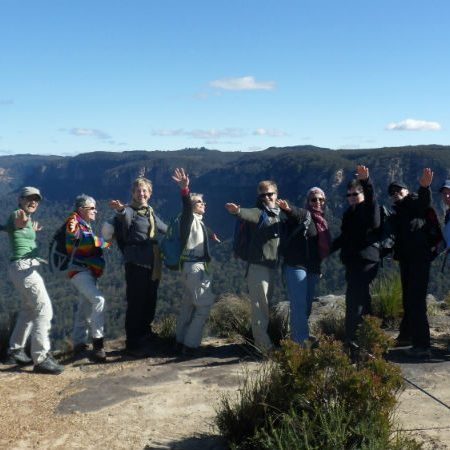Discrimination may leave LGBTI populations vulnerable during the impact and recovery phases of natural disasters.
Research in Australia and internationally has shown that marginalisation and discrimination may leave lesbian, gay, bisexual, transgender and intersex (LGBTI) populations particularly vulnerable during the impact and recovery phases of a natural disaster. An investigation of how LGBTI residents in the Blue Mountains have been impacted by bushfires is now being undertaken by the University of Western Sydney and The University of Sydney.
“Disasters, including bushfires, threaten the safe space of the home and can make people vulnerable to discrimination," says Associate Professor Dale Dominey-Howes from The University of Sydney. “Being part of a marginalised group may also make access to support services problematic. These experiences are often invisible in emergency management policy and practice. We are hoping to change that with this project.”
A chief investigator on the project, Associate Professor Dominey-Howes is a global leader in natural hazards and disaster risk reduction who regularly consults with governments on the development of policy.
“We know that during Hurricane Katrina in New Orleans, for example, LGBTI people experienced significant discrimination in emergency shelters. Same-sex couples also struggled because their relationships weren’t recognised by the authorities administering ongoing financial and housing support,” he says.
Dr Andrew Gorman-Murray, from the University of Western Sydney, is the project’s other lead investigator. He says that research in this area has been extremely limited but is crucial in improving support for and increasing resilience amongst LGBTI people globally.
The researchers have conducted interviews with LGBTI Brisbane residents affected by the floods of 2011. Dr Gorman-Murray says the response to the research in Brisbane was positive.
“I think many people appreciated the chance just to have their stories heard. Happily, some told us of really positive and supportive responses from emergency services, as well as from friends and family. Others were badly traumatised by the floods and continue to rebuild their lives. Our aim is to cover the full scope of these experiences and to include as many voices as possible."
The researchers will be conducting in-person interviews in the Blue Mountains in coming months. To enquire about participating in an interview, or for more information about the research, email Scott McKinnon at [email protected].
If you identify as LGBTI, live or work in the Blue Mountains and have been impacted by bushfire, you can also share your experiences through an anonymous online survey. Surveys take approximately 15 minutes to complete and can be accessed here: https://www.surveymonkey.com/s/Z795TH2.


